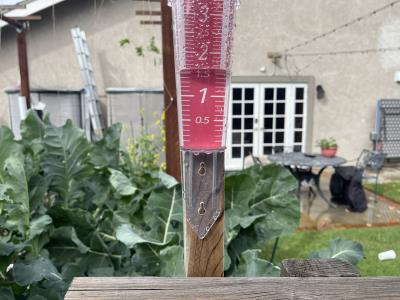




One Of My Biggest Flaws - The Dunning-Kruger Effect
3/25/2024
Finally a chart that puts me in my place. I love to learn. I hope to learn something new every day for the rest of my life. The problem I have, is that once I know a little about a subject, I tend to think I am an Expert. What I didn't realize, is that I am actually on the "Peak of Mount Stupid".
What a great chart! It explains how we often think we are so smart, but yet know so little. I have been saying for years the more I know, the more I realize how little I know. I put this in my decades of life explanations where I describe the process of being a 'know-it-all' teenager, and how that bubble gets burst as we move into our 20s and 30s (it takes some longer than others to realize they don't really know all that much about the world).


Seek Continuous Feedback: Regularly ask for constructive criticism from peers, mentors, or supervisors. Feedback from diverse sources can provide a more accurate picture of your abilities and areas for improvement.
Embrace Humility: Recognize that no matter how skilled or knowledgeable you are, there's always room to grow. Accepting your limitations can be a powerful motivator for learning.
Cultivate Curiosity: Adopt a mindset of continuous learning. The more you learn, the more you'll recognize the vastness of what you don't know. This awareness can help you make more accurate assessments of your abilities.
Practice Reflective Learning: After completing tasks or projects, take time to reflect on what went well and what could be improved. Consider writing a journal to track your growth and learning over time.
Engage in Deliberate Practice: Focus on practicing your skills in a thoughtful and structured way. Deliberate practice involves setting specific goals, getting immediate feedback, and concentrating on technique as much as outcome.
Educate Yourself on Cognitive Biases: By understanding the Dunning-Kruger effect and other cognitive biases, you can better recognize them in your thinking and behavior. This knowledge can help you adjust your self-assessments.
Seek Diverse Perspectives: Exposing yourself to different viewpoints and ways of thinking can help broaden your understanding and challenge your assumptions.
Benchmark Your Skills: Compare your skills against objective standards or the performance of those more experienced. Participating in competitions or industry exams can provide a clear measure of where you stand.
Set Learning Goals: Instead of aiming to be the best, focus on continuous improvement. Set specific, achievable goals for learning and development.
Practice Self-Compassion: Recognize that everyone has strengths and weaknesses, and it's okay to not be perfect. Being kind to yourself when you identify areas for improvement can motivate you to learn and grow without feeling discouraged.


The "Valley of Despair" refers to a phase within the Dunning-Kruger effect and more broadly in the journey of learning and personal development. It's a point where an individual's confidence drops significantly after an initial phase of overestimation of their abilities. This concept is often illustrated in the Dunning-Kruger effect graph, which plots confidence against knowledge or competence.
Initially, when people learn a little about a subject, they can feel overly confident in their understanding and abilities, a phenomenon known as "Mount Stupid." As they learn more, they begin to realize the vastness of what they don't know and their actual skill level, leading to a sharp decrease in confidence. This realization places them in the "Valley of Despair." It's characterized by feelings of inadequacy, self-doubt, and sometimes demotivation, as the learner becomes acutely aware of the gap between their current level of understanding or skill and where they need or want to be.
The "Valley of Despair" is a critical transition point. Those who persevere through this phase by continuing to learn and practice begin to gradually build true competence and confidence. Over time, they move up the "Slope of Enlightenment," developing a more accurate understanding of their abilities and the field. This journey leads to the "Plateau of Sustainability," where individuals have a solid grasp of the subject and a realistic assessment of their skills.
Understanding this phase is important for personal development and resilience, as recognizing the "Valley of Despair" as a normal part of the learning process can help individuals maintain motivation and continue their growth, even when they feel overwhelmed or discouraged.
This Chart is Spot-On!
Last year I started learning about health and nutritions. After a very short period of time, when I basically am just starting to learn so I know very little relative to the vast information about the subject, I become so confident in my 'vast knowledge' that I start to share and try to teach other people. They have a name for that: "The Peak of Mount Stupid".What a great chart! It explains how we often think we are so smart, but yet know so little. I have been saying for years the more I know, the more I realize how little I know. I put this in my decades of life explanations where I describe the process of being a 'know-it-all' teenager, and how that bubble gets burst as we move into our 20s and 30s (it takes some longer than others to realize they don't really know all that much about the world).

What is the Dunning-Kruger Effect?
The Dunning-Kruger Effect is a cognitive bias in which individuals with low ability at a task overestimate their ability. This effect, identified by social psychologists David Dunning and Justin Kruger, stems from the inability of those lacking knowledge or skill to recognize their deficiencies. Consequently, they overestimate their own capabilities. In contrast, highly competent individuals tend to underestimate their comparative competence, presuming that tasks which are easy for them are also easy for others. This cognitive bias can manifest in various domains, from academic performance to workplace settings, leading to a misalignment between self-assessment and actual competence. Dunning and Kruger's work, which began with studies published in the late 1990s, suggests that for one to accurately assess their own skill level, they must possess a certain level of skill in the first place. Essentially, improving one's ability in a particular area can lead to a more accurate self-assessment of competence, thereby reducing the effects of this bias.
Tips To Avoid the Dunning-Kruger Effect
Preventing the Dunning-Kruger effect in yourself involves cultivating self-awareness, seeking feedback, and committing to lifelong learning. Here are several strategies to help you mitigate this cognitive bias:Seek Continuous Feedback: Regularly ask for constructive criticism from peers, mentors, or supervisors. Feedback from diverse sources can provide a more accurate picture of your abilities and areas for improvement.
Embrace Humility: Recognize that no matter how skilled or knowledgeable you are, there's always room to grow. Accepting your limitations can be a powerful motivator for learning.
Cultivate Curiosity: Adopt a mindset of continuous learning. The more you learn, the more you'll recognize the vastness of what you don't know. This awareness can help you make more accurate assessments of your abilities.
Practice Reflective Learning: After completing tasks or projects, take time to reflect on what went well and what could be improved. Consider writing a journal to track your growth and learning over time.
Engage in Deliberate Practice: Focus on practicing your skills in a thoughtful and structured way. Deliberate practice involves setting specific goals, getting immediate feedback, and concentrating on technique as much as outcome.
Educate Yourself on Cognitive Biases: By understanding the Dunning-Kruger effect and other cognitive biases, you can better recognize them in your thinking and behavior. This knowledge can help you adjust your self-assessments.
Seek Diverse Perspectives: Exposing yourself to different viewpoints and ways of thinking can help broaden your understanding and challenge your assumptions.
Benchmark Your Skills: Compare your skills against objective standards or the performance of those more experienced. Participating in competitions or industry exams can provide a clear measure of where you stand.
Set Learning Goals: Instead of aiming to be the best, focus on continuous improvement. Set specific, achievable goals for learning and development.
Practice Self-Compassion: Recognize that everyone has strengths and weaknesses, and it's okay to not be perfect. Being kind to yourself when you identify areas for improvement can motivate you to learn and grow without feeling discouraged.

Questions People Ask About the Dunning-Kruger Effect
Questions about the Dunning-Kruger effect often delve into its implications, how it operates in various contexts, and strategies for mitigating its impact. Here are some common questions people have: How does the Dunning-Kruger effect impact team dynamics in the workplace? People are curious about the effect of varying levels of self-awareness on collaboration, communication, and overall team performance. Can the Dunning-Kruger effect be observed in specific fields more than others? This question explores whether certain domains, such as medicine, education, or finance, are more prone to manifestations of this cognitive bias. What role does culture play in the Dunning-Kruger effect? People are interested in how cultural differences in self-assessment, humility, and the social acceptability of admitting ignorance might influence the prevalence or expression of this effect. How does the Dunning-Kruger effect affect decision-making and leadership? This involves understanding the implications of overconfidence or underconfidence on leadership effectiveness and decision-making processes. Is there a correlation between the Dunning-Kruger effect and other psychological phenomena? Questions often arise about how this effect relates to other cognitive biases, such as the impostor syndrome, confirmation bias, or the halo effect. How can educators and trainers address the Dunning-Kruger effect in their teaching methods? Educators are interested in strategies to help students accurately assess their abilities and promote a growth mindset. What are the long-term effects of the Dunning-Kruger effect on personal growth and career development? People are curious about how persistent misjudgments of one's abilities could impact one's career trajectory and personal development over time. How can one recognize if they are experiencing the Dunning-Kruger effect? This question seeks practical advice on identifying signs that one might be overestimating or underestimating their abilities. Are there interventions proven to reduce the Dunning-Kruger effect? People are interested in research-backed strategies or interventions that could help individuals or organizations minimize the impact of this cognitive bias. How does social media influence the Dunning-Kruger effect? With the rise of social media, there's curiosity about how platforms that often encourage showcasing achievements and minimizing failures might exacerbate or mitigate the Dunning-Kruger effect.
Getting Out of the Valley of Despair
When I understand that I really know very little on the subject I tend to lose interest. I want to be and INSTANT EXPERT, which just isn't possible. Hopefully in most cases I will find humility, then work on sticking with the learning and push forwad into more Enlightenment.The "Valley of Despair" refers to a phase within the Dunning-Kruger effect and more broadly in the journey of learning and personal development. It's a point where an individual's confidence drops significantly after an initial phase of overestimation of their abilities. This concept is often illustrated in the Dunning-Kruger effect graph, which plots confidence against knowledge or competence.
Initially, when people learn a little about a subject, they can feel overly confident in their understanding and abilities, a phenomenon known as "Mount Stupid." As they learn more, they begin to realize the vastness of what they don't know and their actual skill level, leading to a sharp decrease in confidence. This realization places them in the "Valley of Despair." It's characterized by feelings of inadequacy, self-doubt, and sometimes demotivation, as the learner becomes acutely aware of the gap between their current level of understanding or skill and where they need or want to be.
The "Valley of Despair" is a critical transition point. Those who persevere through this phase by continuing to learn and practice begin to gradually build true competence and confidence. Over time, they move up the "Slope of Enlightenment," developing a more accurate understanding of their abilities and the field. This journey leads to the "Plateau of Sustainability," where individuals have a solid grasp of the subject and a realistic assessment of their skills.
Understanding this phase is important for personal development and resilience, as recognizing the "Valley of Despair" as a normal part of the learning process can help individuals maintain motivation and continue their growth, even when they feel overwhelmed or discouraged.
COMMENT BOARD [00220]
Please keep things family friendly, since we are a civilized community here at alanharmon.net! - (CPC Ver 0.01a)
Hello!
My Name is Alan Harmon. I am a Jesus Follower, Husband, Father, Uncle, Friend, and an Engineer with an MBA.
My interests are in Traveling, Investing, Cooking, Gardening, Technology, Business, Hiking, Smart Homes, Family Games, Automation, and Programming.
Most of the information on this website is centered around those interests. I created this website many years ago primarily to share my recipes and some investing advice, but I began to take it a bit more serious in July of 2023.
I hope you find something Useful here. If you do, you can comment below and share this website with others! Enjoy!